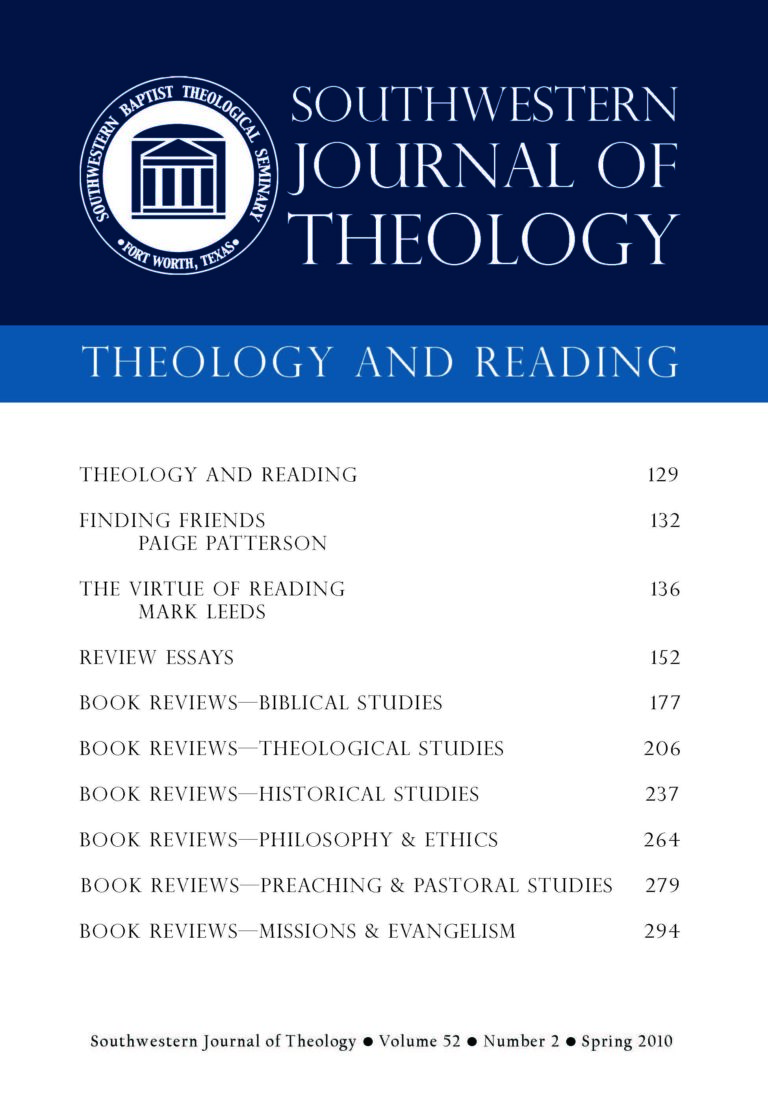
Theology and Reading
Southwestern Journal of Theology
Volume 52, No. 2 – Spring 2010
Managing Editor: Malcolm B. Yarnell III
by Richard A. Burridge. Grand Rapids: Eerdmans, 2007. 490 + xxi pages. Hardback, $35.00.
Richard Burridge is the dean of King’s College London, where he is also Director of New Testament Studies. His level of expertise in his specialty is revealed in this volume in that he explores a broad range of the differing schools of interpretation of the ethics based on the life and teaching of Jesus Christ. The variety of schools of interpretation, and his appeal to being “inclusive” in his approach to Christian ethics, include scholarship from Great Britain, Germany, Roman Catholicism, Evangelicalism, with a special interest in that of South Africa. The latter reflects his interest in the application of New Testament ethics to the context of that African nation and his admiration of Archbishop Desmond Tutu. A major element in the focus of the author, to a fault, is that of his returning often to the concerns of the “Jesus Seminar,” with its multiple qualifiers of that which was the genuine teaching of Jesus. This book could serve as a summary of the ethical debates of the latter part of the twentieth century in liberal Christianity as they relate to New Testament ethics.
The author’s bias on the ethics of Jesus is readily apparent: he almost exclusively focuses on the elements of “imitation” in the ethical teaching and style of Jesus. The moral example of Jesus is surely valid as a major emphasis in New Testament ethics, but not to the exclusion of the ethical impact of the indwelling Christ, especially as it was presented repeatedly in the writings of the Apostle Paul. Even in his extensive presentation on the epistles of Paul, Burridge hardly mentions the “in Christ” dynamic in his ethical construct.
A second distracting quality of this text is that the conclusions of much textual criticism on the New Testament, in which a fair number of the books are assumed not to be authentically written by their named authors. For example, for Burridge, those texts that are “genuinely Pauline,” as particularly identified through their ethical content, are those of Romans, 1 and 2 Corinthians, Galatians, Philippians, 1 Thessalonians and Philemon (90). Nevertheless, all four of the gospels are explored for their emphasis on the “imitation” of Jesus, complete with applications to the ethical issues particular to each of those writers. The conclusion of the text is a special chapter given to an interpretation of apartheid in South Africa and the application of the meaning of the imitation of Jesus as moral guidance for those living in that kind of circumstance.





